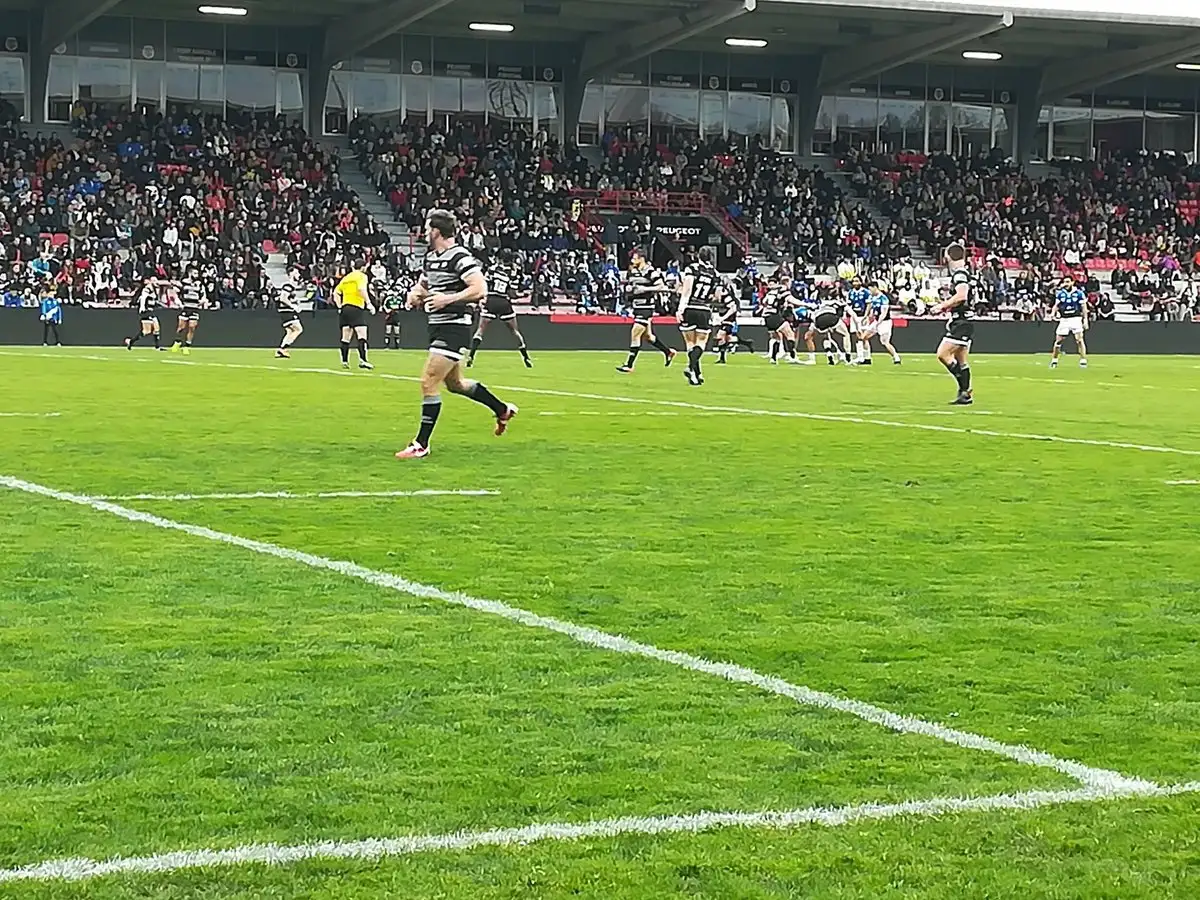Editor’s column: Time for a French revolution?

Toulouse beat Toronto 46-16 in front of more than 6,000 fans at Stade Ernest Wallon in 2016.
If you had said that last time Salford nilled Catalans, back in 2007, that in 12 years the Dragons would still be the sole French representative in Super League, people would have been surprised.
They would have asked – well, what’s the point then?
A glimpse of what should, and still perhaps, could have been was offered on Saturday afternoon when Toulouse turned in the second half display of the season to stun big-spending Toronto Wolfpack 46-16.
Not only that, but they did it in front of a 6,000+ strong crowd at the impressive Stade Ernest Wallon, home of Toulouse rugby union.
Facilities have been the stumbling block for Toulouse, who have been trying to get in to Super League since its inception in 1996, and it remains to be seen whether a ground share with their union counterparts is a feasible solution to their problems.
My recent piece looked at the issues they have had with renovation work at their traditional Stade des Minimes home, which has now ground to a halt, and there is the small matter of them getting it right on the pitch – although with Widnes’ points deduction perhaps taking them out of the equation, maybe only the Wolfpack stand in Toulouse’s way of Super League now.
For too long, we have flirted with this idea that developing the French game is beneficial to the game in England (sorry, UK).
A strong France national team gives England a feasible, and regular, mid-season test opponent, while having multiple French teams in Super League spreads the talent, increases the player pool and captures more national interest.
That’s coming from someone who is skeptical about shoehorning clubs in just because they are from fashionable places, therefore alienating those that aren’t.
More should be done to collaborate between the Championship and French Elite competitions, even if the Anglo-French friendlies of a few years ago were a relative flop.
And, now that the delusional project to host the 2025 World Cup in north America has been pulled, feasibility studies should be put in place for France to host the competition instead.
Rugby league needs to grow more competitive leagues and more competitive nations. It already has a head start in France, and if it can’t make it work there, then it’s going to struggle anywhere else.
After Catalans’ Challenge Cup triumph, it’s time to strike while the iron is hot.
—
The garden in Super League is looking rosier, if you believe the PR coming out of Robert Elstone’s team.
Crowds are up, they say.
That is, if you don’t include London Broncos.
Bottom line is, rugby league is a decent product, but until the left hand knows what the right hand is doing, then it’s going to struggle to progress.
That said, all the hysteria over the Sky TV deal and bemoaning that the game cannot sustain full-time clubs is claptrap.
With the viewing figures rugby league commands, someone, if not Sky, will put up some cash to show it beyond 2021.
And for those that say that Super League cannot sustain 12 full-time clubs, then they are very much underestimating the level that some of the clubs have got to in business terms.
Perhaps if they could thrive in a positive, sporting environment that isn’t dominated by politics, blind expansion and constant change, we may see a more organic growth and a way forward.